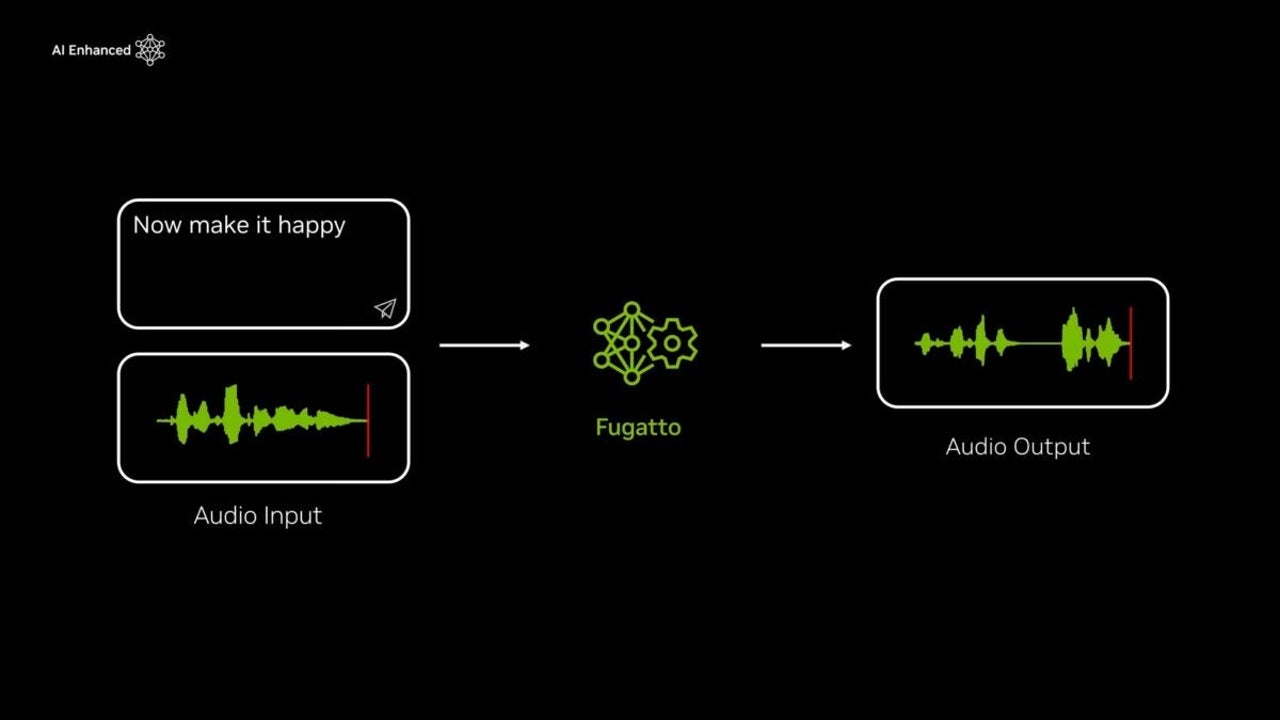Nvidia presents Fugatto, its revolutionary artificial intelligence model for audio and music
The company does not plan to release the model to the public immediately

- November 26, 2024
- Updated: November 27, 2024 at 7:14 PM
Nvidia has announced Fugatto, an innovative artificial intelligence model designed to generate music, sound effects, and modify voices, aimed at music, film, and video game creators. This model, whose full name is Foundational Generative Audio Transformer Opus 1, can create from unique sounds to transform existing pieces, although the company has made it clear that it does not plan to release it to the public immediately.

Subscribe to the Softonic newsletter and get the latest in tech, gaming, entertainment and deals right in your inbox.
Subscribe (it's FREE) ►Nvidia’s proposal joins other similar models, such as ElevenLabs or Descript, which generate voice and audio from textual descriptions. The company has wanted to highlight Fugatto’s ability to create novel sounds, such as making a trumpet sound like a dog’s bark. Additionally, it can modify existing audios, for example, transforming a melody played on the piano into a vocal line or changing the accent and emotion in a spoken recording.
“Music has changed a lot in the last 50 years thanks to computers and synthesizers,” explained Bryan Catanzaro, vice president of deep learning research at Nvidia. “I believe generative AI will bring new capabilities to music, video games, and anyone who wants to create.” However, all these advances are not without ethical and legal issues, especially in the entertainment industry.
The relationship between Hollywood and technology is in a very tense situation. For example, a few months ago, actress Scarlett Johansson accused OpenAI of using her voice in the advanced voice mode of ChatGPT, which allows for fluid conversations with the AI. Nvidia emphasized that Fugatto has been trained with open-source data and is still evaluating how and when it could be publicly accessible, aware of the inherent risks.
The potential misuse of generative models, including the creation of false information or copyright infringement, is one of the biggest concerns that AI companies have (or should have). Both Nvidia and other companies, such as OpenAI and Meta, have not yet determined the measures to prevent these issues, nor have they set release dates for their most advanced models.
Publicist and audiovisual producer in love with social networks. I spend more time thinking about which videogames I will play than playing them.
Latest from Pedro Domínguez
You may also like

SearchGPT is much easier to use on the iPhone thanks to new shortcuts
Read more

China puts obstacles in the way of Apple Intelligence and the solution is unsurprising
Read more

A complete bluff? The reviews for Moana 2 make it clear that the movie does not live up to the original
Read more

The most beloved killer on television has a new series—The trailer for Dexter: Original Sin has arrived
Read more

What will we find in season 2 of Squid Game? The new Netflix trailer makes it very clear
Read more

Enigmatic and ruthless: this is how the new John Krasinski series for Prime Video will be
Read more